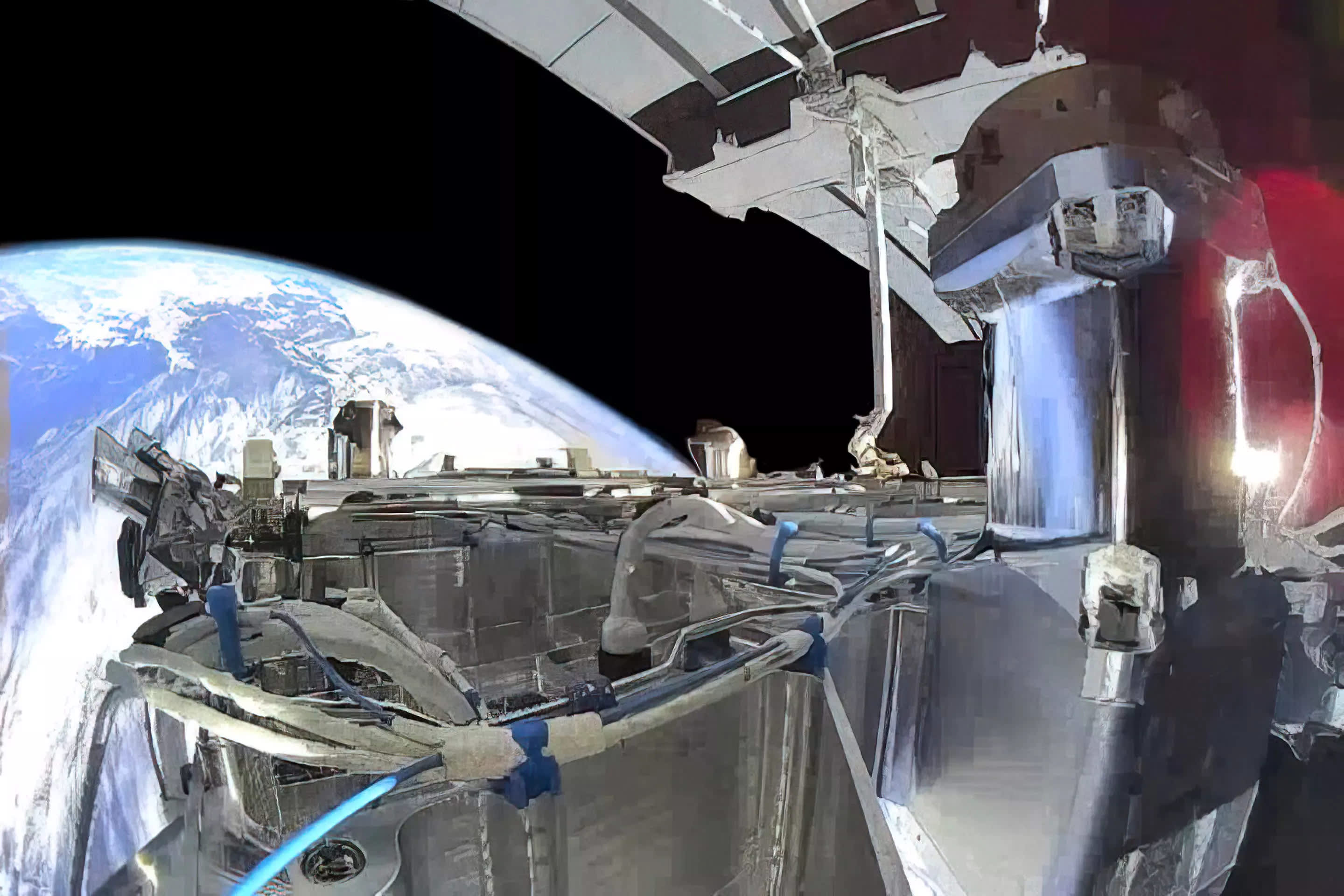Ashish Dangwal
The United States Army is gearing up to conduct trials to evaluate SpaceX’s Starshield systems, tailored explicitly for defense purposes and adapted from the company’s Starlink satellite internet service.
The commanding general of the 5th Security Force Assistance Brigade (SFAB) of the United States Army revealed that their unit is poised to become one of the initial adopters of Starshield.
US Army Colonel Brandon Teague, commander of the 5th Security Force Assistance Brigade (SFAB), disclosed that on October 1, the brigade took delivery of four Starshield systems.
These systems represent the military-specific variant of SpaceX’s Low-Earth Orbit satellite constellation tailored for communication purposes.
These newly acquired Starshield systems are slated for deployment at the Joint Pacific Multinational Readiness Center, where they will play a crucial role in a training rotation scheduled from late October to early November.

A Marine Corps Wideband System-Expeditionary Terminal is utilized during Exercise Vanguard on Camp Hansen, Okinawa, Japan, June 8, 2023. The MCWS-X allows Marines to be capable of operating, defending, and preserving information networks to enable command and control for the commander in all domains, and support and conduct Marine Air Ground Task Force operations in the information environment.
A US Army Colonel said that the first batch of the Starshield systems was introduced into the Pacific theatre, where the 5th SFAB is stationed.
According to Colonel Teague, the Starshield systems will play a crucial role in ensuring uninterrupted communications for the brigade during its validation exercise at Schofield Barracks in Hawaii.
These commercial satellite capabilities will serve as a reliable backup in the event of traditional military satellite communications (satcom) or internet service provider systems experiencing failures.
Furthermore, the system’s user-friendliness enables even non-specialized soldiers to set it up quickly. In a parallel development, SpaceX has recently achieved a significant milestone by securing its first contract with the United States Space Force for its Starshield satellite constellation.
A Space Force spokesperson officially confirmed the contract, valued at US$ 70 million and spanning a one-year duration. This collaboration marks a notable instance of the military branch engaging with the private sector to advance its capabilities in space operations.
This effort also reflects a broader shift within the US military, as it departs from protracted acquisition processes and transitions towards harnessing commercial expertise and capabilities across various mission domains.
SpaceX’s Starshield For US Military
Starshield, comprised of satellites in low-Earth orbit (LEO), is poised to deliver diverse functionalities. This includes, among other things, high-speed broadband, space situational awareness, and alternative solutions for positioning, navigation, and timing.
Starshield’s central focus areas revolve around earth observation, communications, and the hosting of specialized payloads, as elaborated on its official website.
It will leverage the identical broadband technology utilized in the firm’s Starlink satellite network, albeit with a specialized focus on governmental applications, primarily serving the US military and its affiliated agencies.
Unlike Starlink, which serves consumer and commercial needs and boasts the world’s largest satellite constellation, Starshield is exclusively designed to bolster national security initiatives.
Starshield will provide enhanced cybersecurity compared to standard Starlink satellites. It will incorporate advanced cryptographic capabilities that ensure higher levels of security, allowing it to host classified payloads and process data securely, thereby meeting the stringent security standards required by government agencies.

An uncaptioned image posted on the company’s website appears to show Starshield technology in orbit. SpaceX
Nevertheless, SpaceX has a track record of collaborating with various US military and government agencies. This collaboration includes a wide range of activities, including numerous launches within the framework of the National Security Space Launch program, satellite development for the Space Development Agency, and joint initiatives with NASA.
In 2020, the US Air Force also explored the military potential of Starlink. During a significant live-fire exercise, Starlink satellites played a pivotal role by establishing communication links among widely dispersed military assets across the United States, contributing to the successful interception of a drone and a cruise missile.
However, SpaceX’s involvement in defense-related endeavors has not been devoid of controversy. Elon Musk, the CEO of SpaceX, faced criticism for declining a request from the Ukrainian government to employ the Starlink satellite network to coordinate an attack on Russian targets.
Musk has emphasized the civilian character of Starlink, asserting that it must remain dedicated to civilian purposes and avoid any military entanglements. In contrast, “Starshield will be owned by the US government and controlled by DoD Space Force,” Musk noted.
The disclosure has prompted a congressional inquiry into Musk’s actions. Senator Jack Reed, who serves as the chairman of the Senate Armed Services Committee, announced on September 14 that the committee is actively investigating this matter from all possible perspectives.
No comments:
Post a Comment